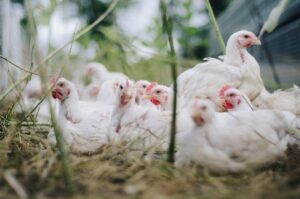Brazil does not favor vaccination as a way to control bird flu because it would inevitably lead to trade barriers, one of its senior officials said on Monday.
The world’s largest poultry exporter has confirmed eight cases of highly pathogenic avian influenza (HPAI), commonly called bird flu, in wild birds, including one in the state of Rio de Janeiro on Monday, but not in a commercial flock.
“Currently Brazil is free from HPAI. If our epidemiological status shifts and we eventually decide to vaccinate … we have a strong feeling that we would be submitted to some trade barriers,”Brazil‘s delegate Eduardo Cunha told the general session of the World Organisation for Animal Health in Paris.
Nearly $10 billion of chicken exports would be at risk if bird flu infects commercial flocks inBrazil, which has taken on a growing role in supplying the world’s poultry and eggs as importers ban chicken and turkey meat from countries with the virus.
Brazil‘s meat trade lobby ABPA, which represents poultry and pork processors, told Reuters in a statement it supports studies for vaccination against avian influenza, in line with ideas defended by the International Poultry Council (IPC) and the International Egg Council. ABPA opposes the imposition of trade barriers on countries that adopt a vaccination strategy.
The severity of the current outbreak of bird flu has led some governments to reconsider vaccinating poultry, but others such as the United States, remain reluctant mainly because of the trade curbs this would entail.
Brazil exports poultry and poultry products to more than 130 countries, which would make negotiations with these importers to accept its vaccinated products “quite a challenge,” said Cunha, who is also director of the Department of Animal Health at Brazil‘s Ministry of Agriculture and Livestock. – Reuters
